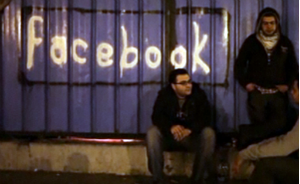 Ever think that Tweet or Facebook status or Crasstalk comment is just going out into the webosphere void to be swallowed up and eventually forgotten? In most cases we pray for this after a night of drunken internet ramblings. Or do you ever think you are just wasting your time writing into this void that gives you so little in return? Well fear not! You can now rest assured that many libraries are on the job making sure that your contribution to the “social memory” of our times is being preserved for future generations!
Ever think that Tweet or Facebook status or Crasstalk comment is just going out into the webosphere void to be swallowed up and eventually forgotten? In most cases we pray for this after a night of drunken internet ramblings. Or do you ever think you are just wasting your time writing into this void that gives you so little in return? Well fear not! You can now rest assured that many libraries are on the job making sure that your contribution to the “social memory” of our times is being preserved for future generations!
These days, many university libraries aren’t focusing on keeping physical records of current publications, but are instead moving to an online focus. This is not anything new, but libraries are going well beyond providing links to journals and other online published sources. Additionally, they are attempting to capture current cultural history in some of its rawest forms, what is referred to as “ephemeral material” which includes things like Facebook status updates during major social upheavals — any kind of traditionally non-published and event-based material generated online.
So, for instance, a project started by the Middle East bibliographer from Stanford targeted the recent upheavals in Egypt, gaining access to all of the Facebook updates generated within in Egypt while everything was in chaos and collecting them for prosperity, keeping their original web context and feel (the web experience and not just the data is also part of the goal). This database will eventually be available for researchers wanting to study that particular moment in Egypt’s political and social history once the libraries get their shit together regarding ISO standards. Yes, librarians want to code everything.
Here are a couple of overviews of the technicalities of the system referred to as the LOCKSS program or literally “Lots of Copies Keep Stuff Safe”. The system can be targeted to collect content from pretty much any web-based content generator so long as the proper permissions are met. Many institutions are jumping on board this Stanford based project.
I am not pretending to know the ins and outs of how this collecting works at a technical level, but I think the applications are far reaching. We are all objects of study in the end.